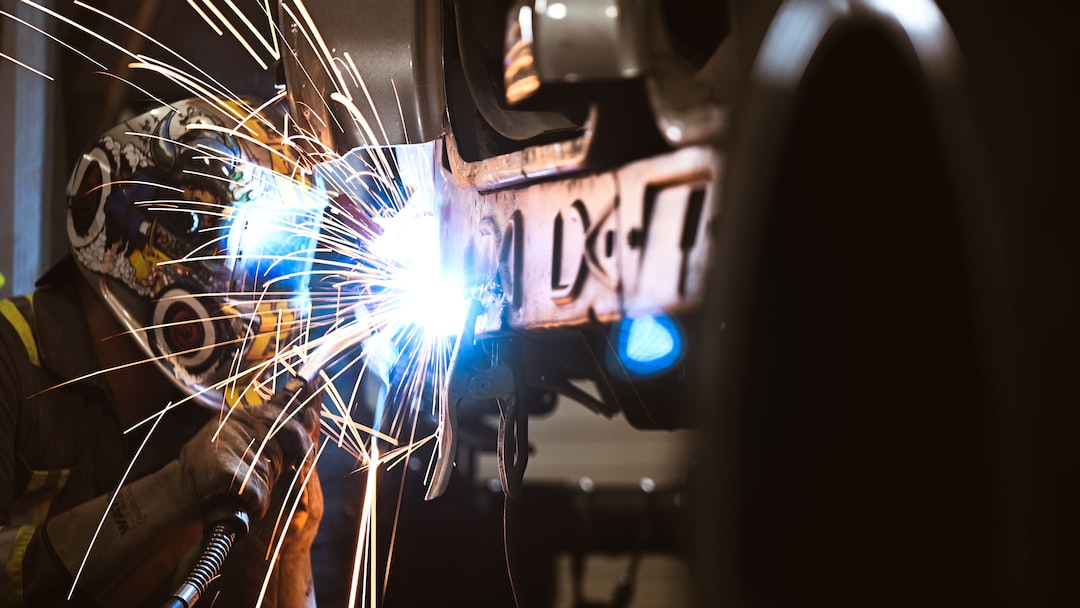The manufacturing industry has come a long way over the years, thanks to advancements in technology and the ever-changing demands of consumers. As we step into a new decade, it’s crucial to keep an eye on the emerging trends that are shaping the future of manufacturing. In this blog post, we will discuss five key trends that are set to transform the industry in the coming years.
1. Automation and Robotics:
Automation has been a game-changer in various sectors, and manufacturing is no exception. With the rise of Artificial Intelligence (AI) and robotics, companies are now able to automate repetitive tasks, leading to increased efficiency and productivity. Robots can work tirelessly, 24/7, eliminating the limitations of human labor. They can also perform intricate and dangerous tasks that humans may find challenging. The adoption of automation and robotics in manufacturing has the potential to revolutionize the industry, reducing costs and enhancing the overall quality of production.
2. Internet of Things (IoT) and Connectivity:
The Internet of Things (IoT) has disrupted many industries, and manufacturing is at the forefront of this transformation. By connecting machines, devices, and sensors, manufacturers can gather valuable insights and optimize their operations. IoT enables real-time monitoring of equipment, leading to predictive maintenance and reduced downtime. Moreover, interconnected devices can communicate with each other, enhancing the coordination and synchronization of manufacturing processes. The integration of IoT and connectivity is reshaping the factory floor and creating a more intelligent and responsive manufacturing ecosystem.
3. Additive Manufacturing:
Additive manufacturing, also known as 3D printing, is revolutionizing the way products are made. This technology allows for the creation of complex and customized designs, with reduced material waste and shorter production cycles. Additive manufacturing is being adopted in a variety of industries, from aerospace to healthcare, and its potential in manufacturing is vast. It enables on-demand production, reducing the need for large inventories and the associated costs. As the technology continues to evolve, we can expect additive manufacturing to play a significant role in shaping the future of manufacturing.
4. Sustainable Manufacturing:
In recent years, there has been a growing emphasis on sustainability, and the manufacturing industry is no exception. Consumers are becoming more conscious of the environmental impact of their purchases, leading manufacturers to adopt sustainable practices. From using renewable energy sources to reducing waste and implementing recycling programs, companies are striving to minimize their carbon footprint. Sustainable manufacturing is not only beneficial for the environment but also presents cost-saving opportunities. By optimizing resource usage and implementing eco-friendly practices, manufacturers can improve their bottom line while preserving the planet.
5. Advanced Analytics and Big Data:
The introduction of advanced analytics and big data has opened up new possibilities for manufacturers. By analyzing vast amounts of data collected from various sources, companies can gain valuable insights into their operations, customer behavior, and market trends. This information allows manufacturers to make data-driven decisions, predict consumer demands, and optimize their supply chain. Advanced analytics also helps in identifying areas for improvement, streamlining processes, and reducing inefficiencies. With the increasing availability and affordability of data analytics tools, manufacturers of all sizes can leverage big data to drive innovation and growth.
In conclusion, the future of manufacturing is being shaped by various trends that are set to disrupt the industry. From automation and robotics to IoT and connectivity, additive manufacturing, sustainable practices, and advanced analytics, these trends are driving significant transformations. Manufacturers need to embrace these trends to stay competitive in the ever-evolving market. By leveraging the potential of emerging technologies and adopting sustainable practices, companies can unlock new opportunities and achieve long-term success in the dynamic world of manufacturing.

